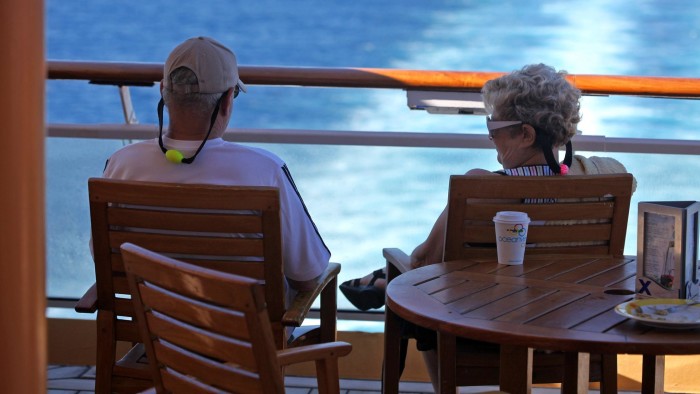The Silver Economy: Travel industry flags up rise in family holidays

Simply sign up to the Retail & Consumer industry myFT Digest -- delivered directly to your inbox.
The cruise industry has spent years trying to woo younger travellers on to their ships, struggling to convince them that sailing the seas is not the preserve of old people seeking comfort over adventure.
These days cruise operators are getting excited about the opportunities that the world’s ageing population is creating, both in emerging and developed markets. According to World Travel Monitor, the generation known as baby boomers – those born between 1945 and 1964 – spend $120bn a year on travel and leisure.
In China, a rapidly growing middle class is looking for new experiences, and a holiday that suits grandma and grandpa is ideal. “There is much greater respect for the elderly,” said David Dingle of Carnival. “In Asia, you are morally obliged to look after the older members of your family.”
Longer term, the Asian tradition of holidays with the grandparents could offer useful lessons for ageing developed economies, where the spending power is shifting from young to old.
A survey last year by Saga, the travel and insurance group focused on older consumers, found that a quarter of UK grandparents have been on holiday with their grandchildren, and two-fifths footed the bill for the whole family.
Multi-generational groups are a godsend for cruise lines. They introduce cruising to younger generations without the need for the hard sell, and of course they fill up the berths.
But grandparents are not just taking the family on cruise holidays. They are turning up in theme parks and in hotels.
“It is definitely the case that we are seeing more and more families as grandparents and grandchildren,” said Nick Varney, chief executive of Merlin Entertainments, whose brands include Legoland, Madame Tussauds, the London Eye and Sea Life.
There were plenty of grandparents who signed up to Merlin’s share offer when the company floated last year, and who have bought the company’s annual pass, Mr Varney added.
InterContinental Hotels Group, whose hospitality brands include InterContinental, Crowne Plaza and Holiday Inn, is trying to cater to the rise of the big family group, who might book the entire floor of a hotel.
“It’s becoming more common for extended families from countries such as India, where disposable incomes are growing, to go away on holiday, creating more demand for these big spaces,” said IHG in a report on future trends.
But even on their own, older people are becoming a formidable market for the leisure sector. According to Saga, spending by over-50s on travel and tourism in the UK grew from 46 per cent in 2002 to 54 per cent 10 years later.
IHG calls this group “expansive midlifers”, noting that the over-50s resent being identified by their age and are enjoying a longer mid-life period thanks to medical research, healthy lifestyles, longer working lives and technology.
In their youth, they did not enjoy “gap years” or the benefits of low-cost flights – so they are making up for it.
Australia has a “Grey Nomad” group who sell their homes, buy luxury trailers and travel the country all year round.
Sam and Shirl, both 65-plus, have been on the road for three years in an 18ft 6in trailer they dub The Castle. They have done one complete circle of the country and plan to do more, they say on thegreynomads.com.au website.
“It’s not for everybody but, if you have the inclination, don’t waste your time,’” they advise. “Just do it. Life is too short.”
Comments